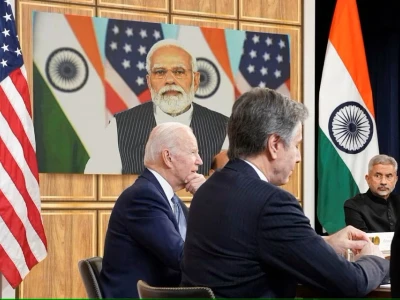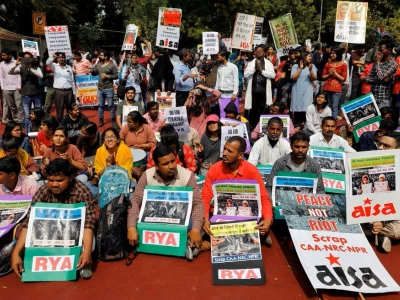
Experiencing gender inequality with menstrual cramps
The campaign has also won a Guinness World Record for donating 100,000 sanitary products in 24 hours. Talk about impact.
By
Azuhaar Abdul Azeez
A lot of debate goes down on the matter of gender discrimination. Bottom line, these voices are calling to give equal authority and opportunities to women as are given to men. These claims are made because women are NOT inferior to men. As the two broadly classified genders of the same species; women don't get the same vote in matters that range from child rearing practices at home to governmental policies on national levels, as men do.
As nature is proof, two species of the same genes will share some characteristics and differ in others. The typical human male form is designed to exhibit strength, with bones tougher than those on feminine frames. However, a woman's body is stronger in other ways; the pain of child birthing and the adaptation to the menstrual pain is evidence of the feminine biology's strength and endurance.
There is no point in assuming an inequality here. Men and women have the same self actualisation needs, but our physical forms and biochemistry alters the way we conduct our lives. Adding subordination, degradation and petty characteristics from religion and culture will not change the science of it, because religion does not advocate the belittlement of women either. Where do men and women come from?
Regardless of science and facts, the point that gender discrimination is such an issue today is totally owed to those communities that practice gender discrimination. As always, the circle goes back to where it started from; the history of every nation.
Take India for instance. With their multiple faceted deities and historical powerful women as heritage, India is seen stifling, abusing and degrading women to the point that the mention of menstrual cramps is taboo in this modern day.
Women in India have been excluded from social and religious events while they are menstruating, as many see periods as a sign of ‘impurity’. To simplify the scientific explanation, menstruation is a form of ‘servicing’ done by the body.
A campaign run by the youth in India are taking menstruation simulators to malls and colleges to let men experience period cramps, in a bid to normalise conversation around the subject.
The menstrual simulator programme is part of a project by NGO Cup of Life, promoting menstrual cups and busting myths around periods. It was launched by local lawmaker Hibi Eden from the Congress party along with the Indian Medical Association (IMA), which represents doctors.
"That was really painful. I never want to experience that ever again," says Sharan Nair, a social media influencer who had tried the simulator at a mall.
Footage shows participants howling in agony after strapping on the simulator, as women gather to film men’s plight. Women had little reaction to the machine but men were “bringing the place down” as they struggled to cope with pain intensity.
Women who used the machine “did not even flinch” on the highest pain setting, while men struggled with anything above four out of 10, according to Dr Akhil Manuel, joint secretary of the local chapter of the Indian Medical Association and coordinator of the Cup of Life campaign.
The campaign has also won a Guinness World Record for donating 100,000 sanitary products in 24 hours. Talk about impact.
Similar demonstrations have taken place around the world recently, like at the 2022 Calgary Stampede exhibition in the United States where a Canadian company aiming to take the stigma out of discussing period pain, operated a booth, offering simulator experiences.
The company is causing quite the buzz with their period pain simulator, and many of the videos from the event have been going wildly viral on TikTok.
Menstrual Leave and Gender equality
Men did not get paternity leave until recently in the Maldives. Paternity leave is the time a father takes off from work after the birth of their child. Studies show that those who take parental leave form stronger bonds with their baby and provide crucial emotional and physical support for new moms. Maternity leave has been included in many governmental policies around the world, but paternity leave is still slow in becoming legalised everywhere. This time gender inequality is faced by the men.
There is also growing talk of including menstrual leaves, and many countries are adopting this. There are some issues with pressing too deep into gender rights for women. Every Human Right is limited at the threshold of violating the other, so implementing gender-specific leaves of absence will not encourage equality, but might actually become the cause of discrimination.
The essentialization of women’s bodies could fuel harmful stereotypes that regard women as less worthy or reliable employees or incapable of working while menstruating – when that is far from universal. Expert psychologists in the field fear women could be branded as too “emotional” if they discuss their menstrual symptoms in the office.
Moreover, even if menstrual-leave policies are implemented, workers have to feel like they’re in a culturally permissive-enough environment to take advantage of them. Establishing an openly gender inequal policy favouring women like this can cause shame and stigma to fall on the woman who dares to request for this leave.
The Maldives practices a good leave policy; all civil servants, and most private companies grant all of their employees 30 days of absence without submitting any medical certificates. Compared to the countries that have enlisted Menstrual Leaves, which gives the employee a day or two every month, having 30 days of personal leave will accommodate both genders in taking personal time out without over scrutiny.
Often, these ventures by individual companies are taken out of scope and used to address political standings. While these Canadian and Indian companies targeted only awareness, these events have taken trend with discussions about how superior women are to men, achieving equality in adverse.




